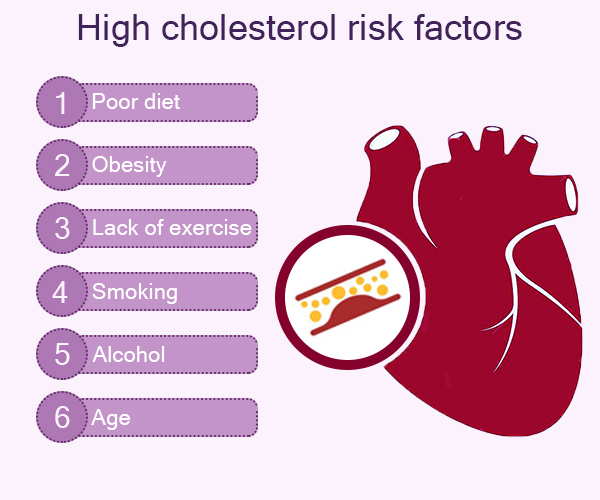High Cholesterol Treatment Manhattan NYC
High cholesterol, a condition also known as hyperlipidemia, can endanger your health and lead to heart disease or even a heart attack. Having high cholesterol means you’ve got high concentrations of low-density lipoprotein (or bad) cholesterol, commonly called LDL. But high cholesterol is a treatable condition. Statins are available and widely prescribed to effectively lower your bad cholesterol. But only diet and exercise can raise your good cholesterol and control your triglycerides. If you’re at risk, have your cholesterol levels checked regularly at the New York Cardiology, Manhattan center.

Cholesterol is a type of lipid or fat your body uses to function properly. The goal of health is to achieve a state of balance in your body to ensure it functions optimally. The moment any organ or system in your body slips out of balance, health issues become apparent. There are four cholesterol-related measurements that your physician tracks:
- Your total cholesterol count
- The amount of high-density lipoprotein (HDL) cholesterol in your bloodstream
- The amount of low-density lipoprotein (LDL) cholesterol present
- Your triglyceride count
HDL is referred to as the good cholesterol while LDL is the bad cholesterol. Hyperlipidemia is a condition in which your body contains too much LDL cholesterol. In general, you want to raise your HDL count while reducing your LDL count. Hyperlipidemia increases the presence of fatty deposits in your arteries and can lead to blockages, resulting in a variety of coronary diseases.
Contributing Factors to High Cholesterol
One reason for having high cholesterol may be a metabolic syndrome, defined as having three or more of: a large waist, high triglyceride levels, reduced HDL cholesterol level, increased blood pressure or elevated fasting blood sugar. Metabolic syndrome is often characterized by an apple- or pear-shaped body.
You need tests to determine whether your cholesterol is out of your control due to a genetic predisposition or within your control through nutrition and weight management. When your local cardiology doctor or a leading heart specialist Dr. Reisman of cardiovascular diagnostic center knows why you have high cholesterol, you can get effective treatment. Some tests your doctor may conduct include:
- Expanded lipid analysis. This analysis measures lipids, lipid subfractions, particle size and particle number.
- NMR lipoprotein. NMR stands for nuclear magnetic resonance. It’s the most in-depth way to understand your cholesterol numbers and determine your risk of heart disease. This test provides real-time, direct measurements of how much LDL is in your body.
- Carotid intima-media thickness (IMT). This is a type of noninvasive ultrasound where your carotid arteries, found in your neck, are measured. This test detects early signs of heart disease before blockages develop.
- Coronary calcium CT scan. This is a specialized x-ray that provides pictures of your heart. These images reveal if and how much plaque is present in your arteries. Plaque can restrict or completely block the flow of blood to the muscles in your heart. Your heart muscles start dying if they don’t get needed nutrients and oxygen that blood carries. This condition can cause a heart attack.
- Cardiac CT scan. Also known as computed tomography, this is a non-invasive scan, using x-rays to take detailed pictures of your heart and its blood vessels.
Treating High Cholesterol in NYC
Whether you need hyperlipidemia treatment or metabolic syndrome treatment is up to your Manhattan cardiologist to decide. Hyperlipidemia treatment most often means taking medication to control your symptoms while you focus on lifestyle changes that naturally reduce the LDL while raising your HDL count. Medications include:
- Statins
- Cholesterol absorbing inhibitors
- Bile-acid-binding resins
- Injectable medications, such as PCSK9 inhibitors
Statin drugs are by far the most common way to control your high cholesterol. In fact, almost 30 percent of Americans take a statin. For your triglycerides, you may be directed to take fibrates, niacin or an Omega-3 fatty acid supplement. Metabolic syndrome treatment involves treating your cholesterol, blood pressure and blood sugar. For more information or to have your cholesterol levels checked, make an appointment at the New York Cardiac Diagnostic Center.
Read more: https://newyorkcardiac.com/high-cholesterol
If you have any questions for the best in class NYC cardiologist or would like to schedule a consultation or appointment, please feel free to contact our Midtown Manhattan Cardiologists Office 212-582-8006
New York Cardiac Diagnostic Center
200 West 57th Street, Suite 200
New York, NY 10019
212-582-8006
Web Address https://newyorkcardiac.com/
Midtown, NY office: https://newyorkcardiac.com/best-cardiologists-midtown-manhattan-nyc
Our location on the map: https://g.page/New-York-Cardiology-Midtown-NYC
https://plus.codes/87G8Q289+5Q New York
Nearby Locations:
Midtown
Hell`s Kitchen, Little Brazil, Lenox Hill, Diamond District
10017, 10019, 10021, 10036
Working Hours:
Monday: 8 am – 5 pm
Tuesday: 8 am – 5 pm
Wednesday: 8 am – 5 pm
Thursday: 8 am – 5 pm
Friday: 8 am – 5 pm
Saturday: Closed
Sunday: Closed
Payment: cash, check, credit cards.
